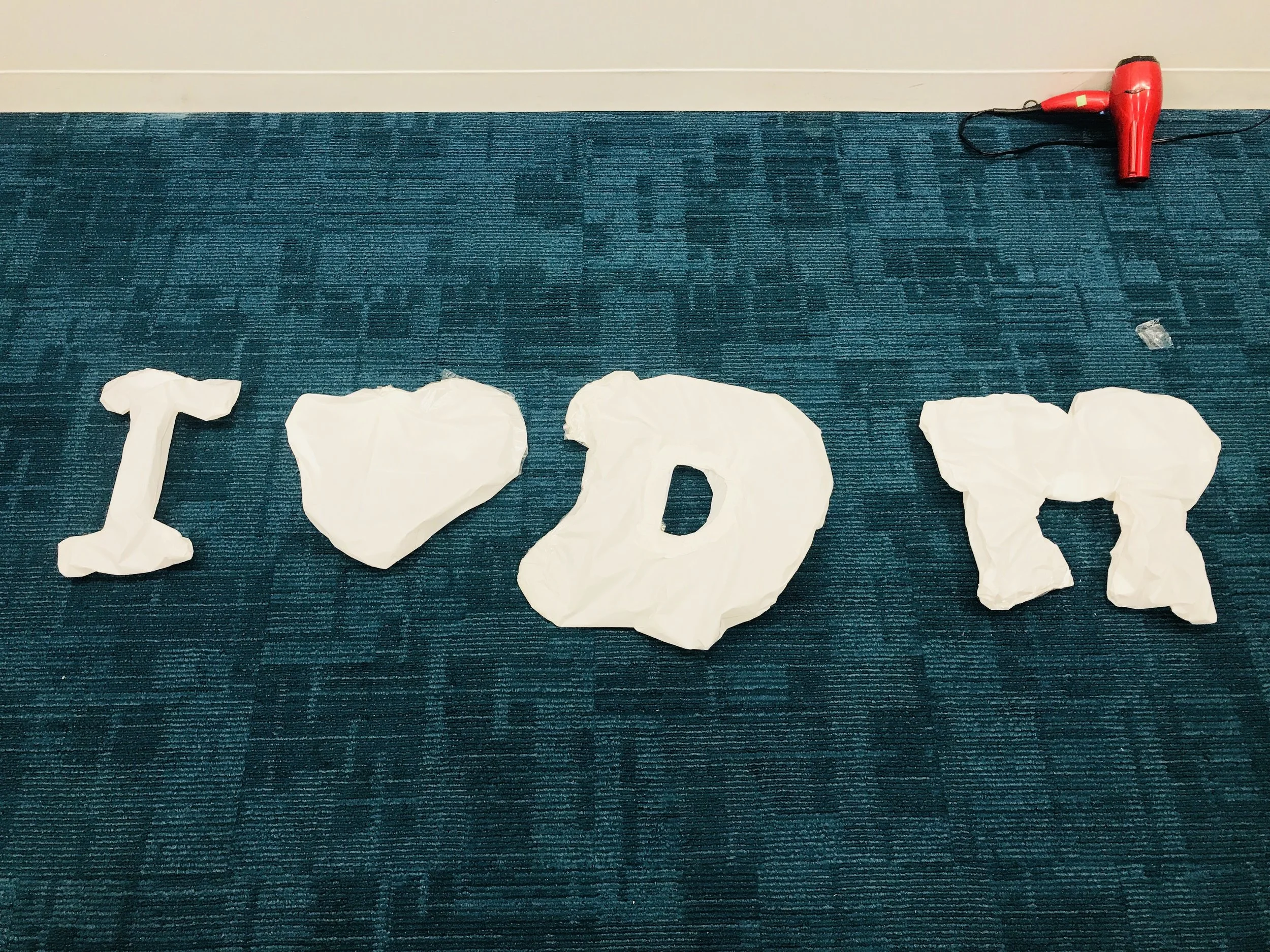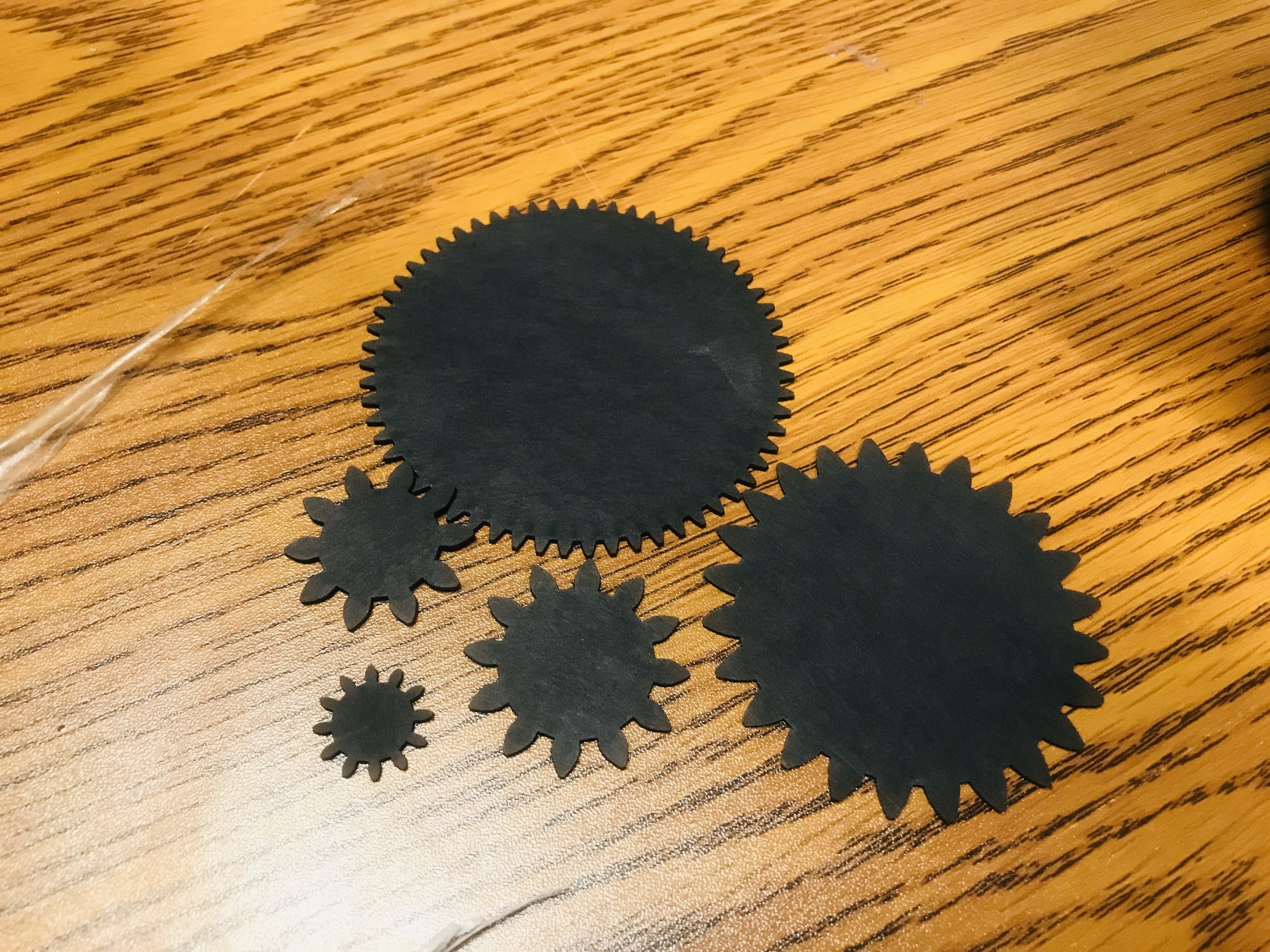Project 02 – Walking clock: Experiment and research
Design
I want to make a wearable walking clock. The clock will be progressed by pure mechanics like gear and bearing. The clock will only start to ticking when I’m walking and it would stop when I stop walking.
Material research
According to scientific research, the frictional force between polymer and metal surface is very small. Thus, using plastic or metal gear for a clock would last longer than wood or rubber.
Blueprint
Experiment
Cardboard wheel train system:
In order to make two needles to tell time in different standard, I’m planning to place a bearing to control those two different gear. Thus, their axles will be connected while they can still go as different speed.
Acrylic wheel train system:
Afterthoughts
After this experiment for materials and design, I noticed that acrylic will melt when laser cutting, which made the diameter a little smaller than my blueprint and pressure angles sharper.
For the next prototype, I will decrease the numbers of teeth for each gear and make it larger for a wearable.
Reference
http://rspa.royalsocietypublishing.org/content/royprsa/212/1111/488.full.pdf
http://publications.lib.chalmers.se/records/fulltext/181751/181751.pdf
https://physics.info/friction/
https://woodgears.ca/gear_cutting/template.html
https://animagraffs.com/
Vinogradov, G. V, Mustafaev, V. A., & Podolsky, Y. Y. (1965). A study of heavy metal-to-plastic friction duties and of the wear of hardened steel in the presence of polymers. Wear, 8(5), 358–373. https://doi.org/https://doi.org/10.1016/0043-1648(65)90167-5








